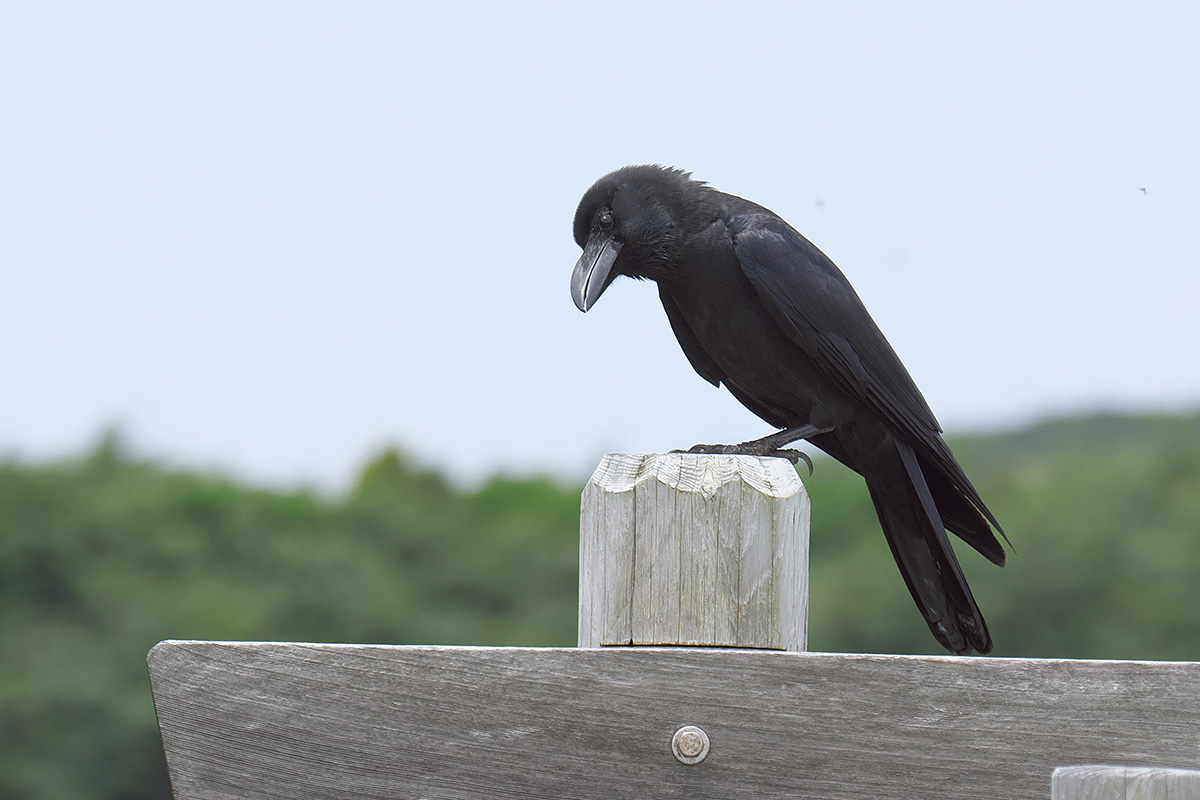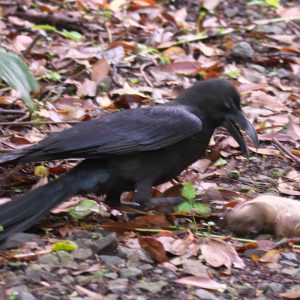むなかたが集まる
電子データベース
電子データベース
ハシブトガラス

| 種目 | ハシブトガラス (嘴太鴉) | 分類 |
スズメ目 カラス科 カラス属 |
学名 | Corvus macrohynchos | 英名 | Large-billed Crow |
|---|---|---|---|---|---|---|---|
|
ハシブトガラス (嘴太鴉) |
スズメ目 カラス科 カラス属 |
Corvus macrohynchos | Large-billed Crow |
宗像市でみられる場所・時期
宗像では留鳥である。市内全域で一年中見ることができるが,ハシボソガラスに比較してその数は少ない。
特徴
全長57㎝。ハシボソガラスよりも大きい。雌雄同色である。
全身黒色で,青紫光沢がある。嘴と脚は黒色で,太く大きく湾曲する。虹彩は暗色。額の羽毛を丸く盛り上がらせていることが多い。幼鳥は特に風切,尾に褐色みがある。口内は赤い。虹彩は暗灰色,口角は赤みである。鳴くときに頭を膨らませて,前傾姿勢になる。尾を下げる。
習性
海岸から高山帯まで幅広く生息している。一定のねぐらを持ち,早朝に採食場に分散し,夕暮れに戻る。地上ではホッピングとウオーキングの両方を行う。雑食性で何でも食べる。小動物を襲って食べることもある。
大きな都市の中心部などにも住み,人間の捨てた生ゴミなどをあさる。
分布
留鳥または漂鳥として,小笠原諸島を除く全国に分布する。カラフト,沿海州から朝鮮半島,中国,インドシナ半島,マレー半島,インドネシア,フィリピン,ボルネオの中心部の一部に留鳥として分布する。
その他
もともとは熱帯から亜熱帯のアジアのジャングルに暮らす鳥であったが,日本では都市の鳥として定着した。都市は餌が豊富で競合する競争相手が少ないからである。ゴミをあさり散らかすため害鳥として駆除されたりする。
 はじめに
はじめに お問い合わせ
お問い合わせ